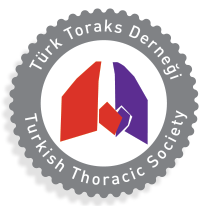Abstract
OBJECTIVES: To determine the effects of an asthma training and monitoring program on children’s disease management and quality of life.
MATERIAL AND METHODS: The sample consisted of 120 children and their parents. Data were collected during, at the beginning, and at the end of the 3-month monitoring period using four forms and a quality of life scale. After an initial evaluation, approaches to control symptoms and asthma triggers and measures that might be taken for them were taught to the children and parents. The children recorded the conditions of trigger exposure, experience of disease symptoms, their effects on daily activities, and therapeutic implementations on a daily basis.
RESULTS: During the 3-month monitoring period, the number of days when the children were exposed to triggers (p=0.000) and experienced disease symptoms decreased to a statistically significant level (p=0.006). Majority of domestic triggers disappeared, but those stemming from the structure of the house and non-domestic triggers indicated no change (p>0.05). Moreover, 30.8% of the children applied to a physician/hospital/emergency service, 4.2% of the children were hospitalized, and 30% of them could not go to school. The number of times when the children applied to a physician/hospital/emergency (p=0.013), the number of times they used medicines (p=0.050), and the number of days they could not go to school (p=0.002) decreased at a statistically significant level, and their quality of life increased (p=0.001).
CONCLUSION: Asthma training and monitoring program decreased children’s rate of experiencing asthma symptoms and implementations of therapeutic purposes and increased their life quality.



.png)
